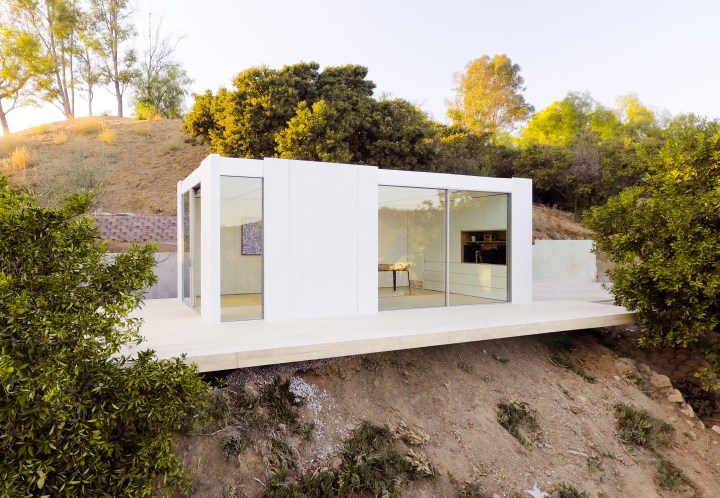

It’s a small step but an important one for the fledgling company, which aims to make living and working in a sharply designed and well-built space a reality for everyone. The first commercial unit by the company is a small but elegant marvel — a 320-square-foot space that will be used as a music studio and office by an Oscar-nominated sound editor.
“Unlike other prefab companies and builders, Cover is a technology company first, armed with a team of full-time software engineers, designers, manufacturing engineers, and architects who have developed technology that streamlines the entire process of designing, buying, permitting, manufacturing and assembling Cover units,” Rivas said. “We focus on the quality of the spaces and the little details—like the way light reflects off surfaces, how a door handle feels or the framing of the view—to transform the living experience for our customers and ensure a more efficient, smarter and thoughtful way of living.”
Cover uses CATIA, a multi-platform software suite developed by Dassault Systemes, to generate home models that are responsive to their environment. The software, which isn’t traditionally used in the architecture industry, also allows designers to optimize the designs for natural light and other location-central details. When complete, the units feature unique design standards that include integrated control interfaces, radiant heating and cooling, and true floor to ceiling windows.

Cover’s units are also designed to meet the rigorous Passive House standards that create ultra-efficient ecologically friendly buildings. The company pays strict attention to sustainable design, building the units in a controlled environment factory and ultimately producing units with steel structures that are 27 percent recycled material, and 100 percent recyclable.
Naturally, completed units cost more than the initial design. The permitting process costs approximately $20,000, and a completed Cover unit runs between $250 and $350 per square foot. In translation, completed units can cost between $70,000 for a guest bedroom to $250,000 for a two-bedroom unit. Cover can now construct a completed unit within 12 weeks, with units ranging in size from 100 to 1,200 square feet, with the option to include full kitchens and bathrooms.
It’s a great first step for a company that was only founded in 2014. The company continues to take pre-orders worldwide and is currently delivering in Los Angeles. Cover’s production line is currently slated to produce approximately 150 units annually.



